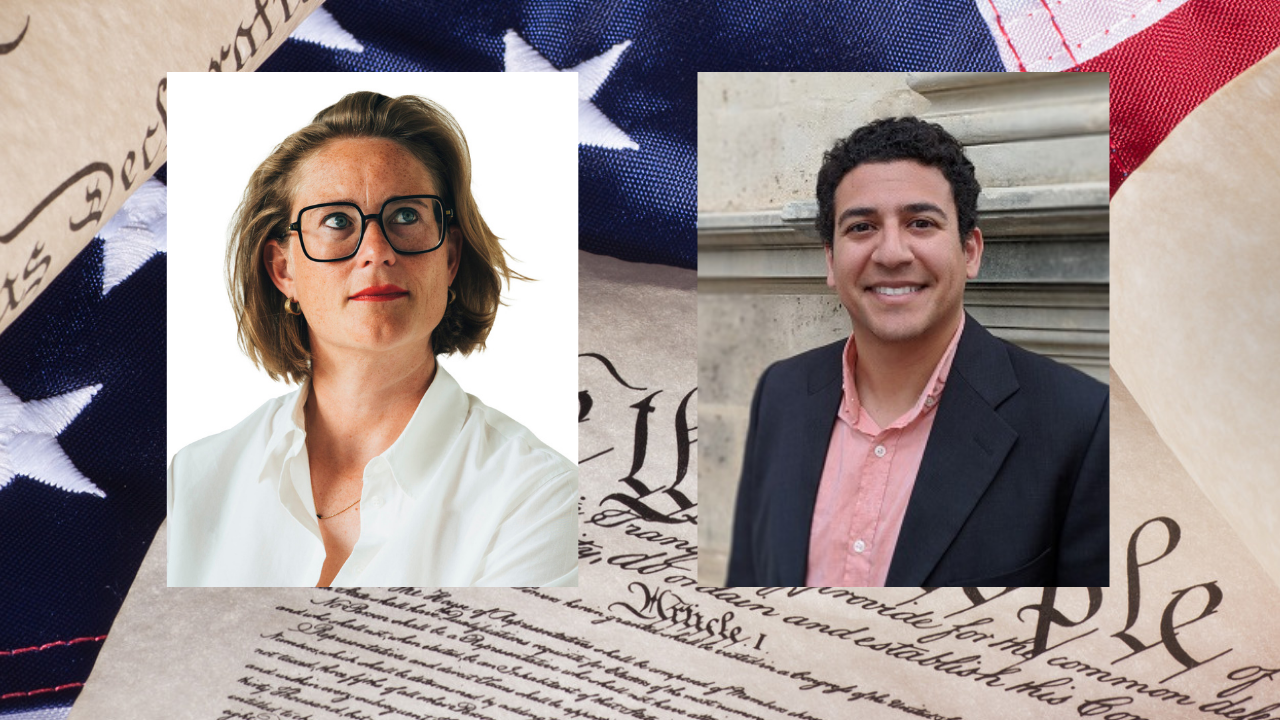March Lecture and Community Dialogue to Discuss Freedom

This March, a pair of community events in the “Scranton’s Story, Our Nation’s Story” project’s second theme, “The U.S. Citizen and the American Founding” will focus on the concept of freedom – both for our founders and for us today. These events, hosted by The University of Scranton along with community partners, will engage with the larger questions and concerns surrounding the topic of freedom and our shared democracy as our nation approaches its 250th anniversary.
On Tuesday, Mar. 1 at 5 p.m. a Humanities Lecture with Q&A, “Freedom and Our Founding: What do they mean for us today?" with feature two authors and distinguished scholars, Annelien de Dijn, Professor of Modern Political History and section chair of the Political History Department, Utrecht University, and author of Freedom: An Unruly History and Aziz F. Rana, Richard and Lois Cole Professor of Law, Cornell Law School, and author of The Two Faces of American Freedom. Speakers di Dijn and Rana will focus on the evolution of the concept of freedom in Western political thought, including how it has been understood and interpreted by the founders of our nation, and how we can re-engage with our own notions of “freedom” and what this means for our democracy today.
This event will take place on Tuesday, Mar. 1 from 5 to 6:30 p.m. via Zoom and participants will have the opportunity to submit questions for the speakers during the live Zoom event. Registration is required at: surveymonkey.com/r/FreedomToday
On Tuesday, Mar. 22 from 7 to 8:30 p.m. members from both the University of Scranton and greater Scranton area communities are invited to join a public dialogue on “Freedom and Our Founding: What do they mean for us today?". This dialogue will be held on The University of Scranton campus and will involve facilitated small-group structured dialogues that allow participants to reflect on freedom and the founding and our role as citizens in a democracy. Participants will have a chance to consider brief excerpts from founding related readings, share their own experience and perspectives on issues that relate to freedom and equality today, listen to others’ views and engage in conversation.
The University has organized similar discussions on campus since 2017 as part of an ongoing Dialogue Across Differences Initiative, which blends the reflective, structured dialogue methods of national non-profit Essential Partners with St. Ignatius of Loyola’s teachings of discernment and reflection. For tips on how to have your own constructive dialogue that involves both listening to and learning from others, click here.
Registration for this public dialogue is required at: surveymonkey.com/r/FreedomDialogue2022
Theme 2 events began with a Book Discussion on Freedom: An Unruly History on Thursday, Feb. 3 from 5 to 6:30 p.m. Participants reflected on excerpted readings of the book, “Freedom: An Unruly History,” by scholar Annelien de Dijn and shared their own views on the concept of freedom in a discussion led by Dr. Matt Meyer, University of Scranton Philosophy faculty member. Discussion themes included the origin of the concept of freedom along with the relationship between freedom and government, the common good, and rules. This hybrid event was hosted by the Scranton Public Library.
Please visit the “Scranton’s Story, Our Nation’s Story” project website for further details, including event updates, community partners and humanities resources, at scranton.edu/scrantonstory and contact community@scranton.edu with questions.
Follow “Scranton’s Story, Our Nation’s Story” on Facebook and Instagram @ourscrantonstory and on Twitter @scrantonstory.
This project has been made possible in part by the National Endowment for the Humanities: Democracy demands wisdom. Any views, findings, conclusions, or recommendations expressed in these events do not necessarily represent those of the National Endowment for the Humanities.






